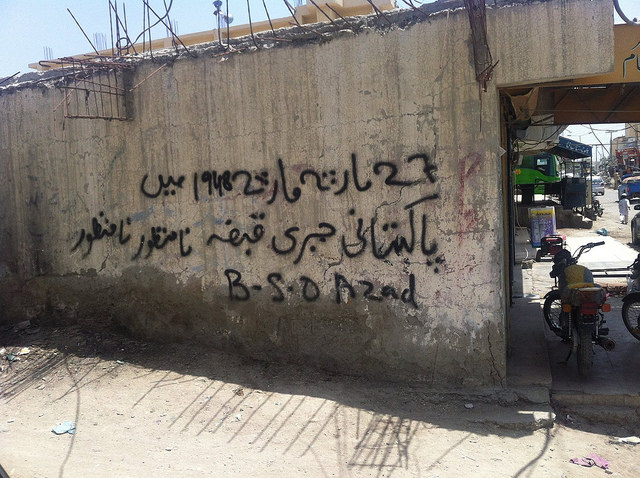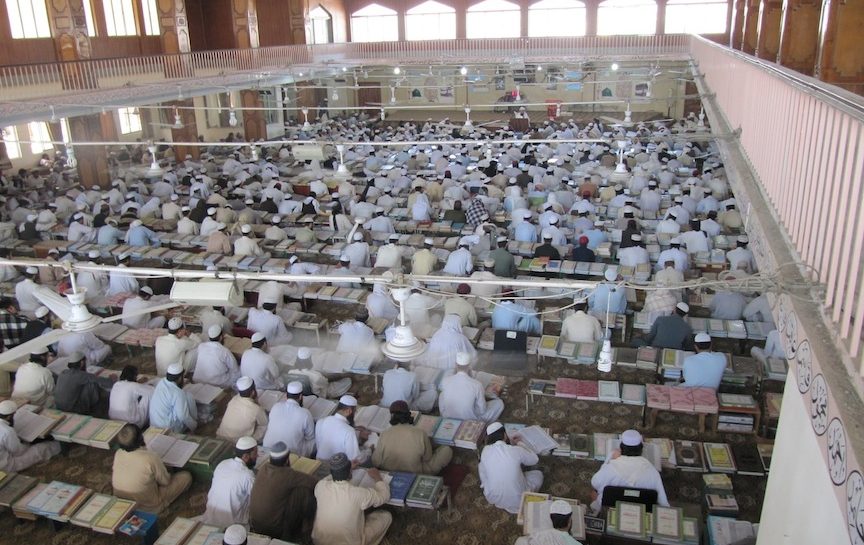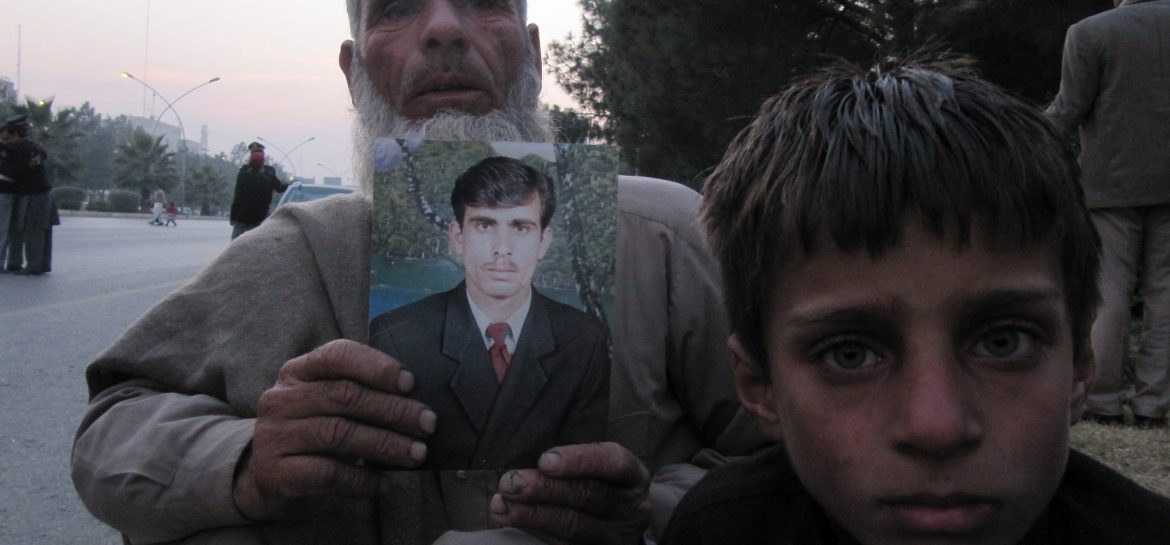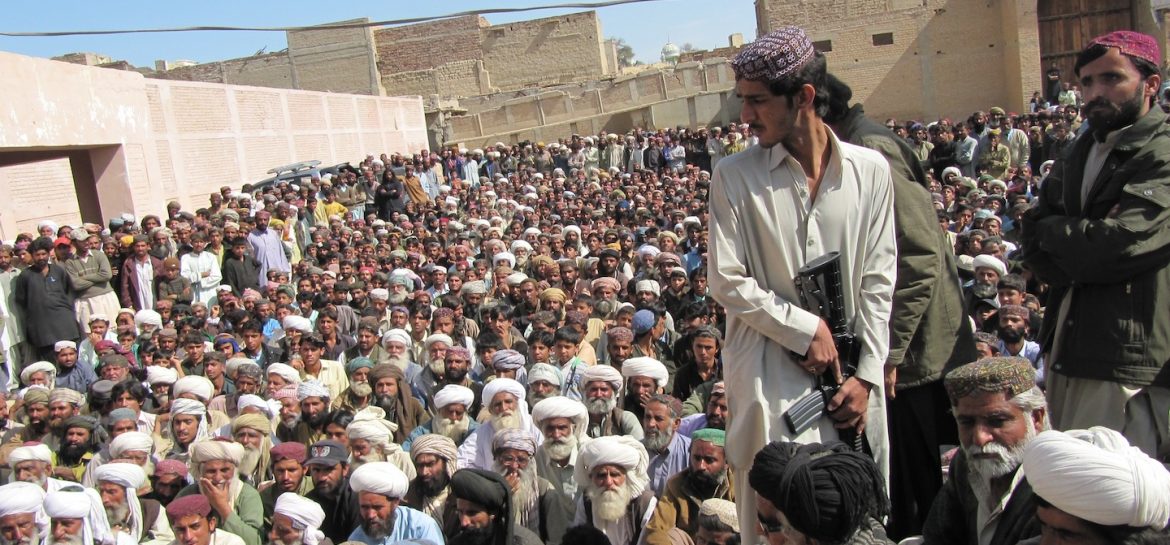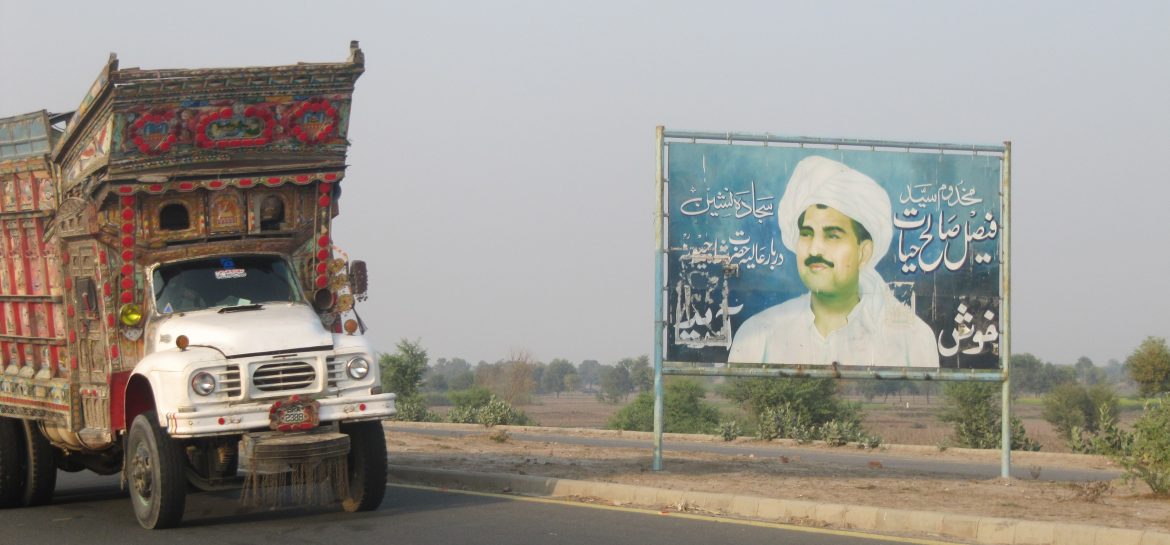For the Christian Science Monitor: Turbat, Balochistan: In Turbat’s main square, dozens of troops from the Frontier Corps spend their day nervously scanning traffic. One soldier, his machine gun resting on the bulge in his flak jacket, visits the square’s shopkeepers one by one, checking in with them. More than 55,000 troops are deployed in Balochistan, but this is a war most Pakistanis have no idea is occurring. An eight-year old insurgency – the fifth one in the province since Pakistan’s founding in 1947 – shows…Continue Reading “Festering and forgotten, Pakistan’s other war burns on”
For the Christian Science Monitor: Anwarul Haq, a frail, bespectacled cleric, sits before a class of attentive students in Darul Uloom Haqqania, one of Pakistan’s many madrassas, or Islamic seminaries. His class of 1,400 students is the most senior of 4,000 enrollees at Darul Uloom, an hour’s drive from Peshawar. The students follow a 500-year-old curriculum adopted across South Asia. The oversized book used in Mr. Haq’s class, a collection of ahadith, or sayings attributed to the prophet Muhammad, is centuries old and written in…Continue Reading “Pakistan’s Islamic seminaries pair science with the Quran”
For Al Jazeera: Tribes in Pakistan’s FATA region are struggling to repeal a colonial-era, collective punishment law. When armed men blew up a power station in Mohmand Agency two years ago, security forces came to the local press club and arrested Saeed Badshah and a fellow journalist. “The power station was near my home,” Badshah explained, “so under the collective responsibility clauses of the Frontier Crimes Regulations, we were detained until the culprits were produced by residents”. Badshah was lucky – authorities released him within…Continue Reading “Pakistan’s FATA: Lawless no more?”
For Tanqeed.org: The night Chief Justice Iftikhar Muhammad Chaudhry was set to retire on December 11th 2013, I visited a sit-in being organized by relatives of missing persons in the capitol. The families of hundreds of men thought to be in the custody of Pakistan’s security agencies sat at the end of Jinnah Avenue, huddled together to keep warm. A few hundred yards and two layers of shipping containers separated them from the Parliament building. An eternity seemed to separate them from the lawmakers inside…Continue Reading “The Man Who Could, a Profile of Chief Justice Muhammad Iftikhar Chaudhry”
For the Christian Science Monitor: Kareem Khan’s son and brother died in a US drone strike. His lawsuit has made waves in Pakistan and overseas, and he was recently detained for nine days. On Dec. 31, 2009, Kareem Khan, a journalist in Islamabad, got a call from a cousin in his hometown in Pakistan’s tribal belt. He was told to come quickly. He reached his village a few hours later to find locals gathered around the rubble of his house, the target of an American…Continue Reading “Why a Pakistani reporter is suing the CIA for murder”
For Al Jazeera English: A new generation of Balochi nationalists has emerged, eight years after the death of the movement’s leader. Dera Bugti, Pakistan – Nearly eight years after Balochi leader Nawab Akbar Bugti was killed in fighting with the Pakistani military, a new generation of Balochi nationalists is emerging in his place in Pakistan’s restive western province. Two of Bugti’s grandsons have led the return of thousands of tribesmen from a decade-long exile, while a third heads a separatist armed group that carries out…Continue Reading “The return of Pakistan’s Baloch tribesmen”
For The Revealer: The scene that greets the devotee upon entering the final resting place of Shah Jewna leaves little doubt as to what is expected of them in the world outside. The shrine—an expansive complex of marble buildings that is expanded every year—rises out of a landscape of dusty fields of cotton and fruit orchards pockmarked by brick kilns and dilapidated shops, the most important landmark for miles around. A dirt road leads to the shrine, some 125 miles west of the city of…Continue Reading “Diminishing Returns: Sufi Shrines in Pakistan’s Politics”
For the Christian Science Monitor: Pakistan’s top body of Islamic scholars is pushing for a crackdown on hate speech in an effort to curb intra-faith violence in the world’s second-largest Muslim country. Last month, 32 groups representing the major Islamic sects in Pakistan signed on to a code of conduct that prohibits hate speech against other sects, restricts the use of mosque loudspeakers, and bans incendiary literature and graffiti. The religious leaders are trying to combat a steady rise in sectarian disputes. In 2012, at…Continue Reading “Islamic scholars in Pakistan push for hate speech ban”
For the Wall Street Journal: Hundreds of men crowded the plaza in front of the Mosque of Martyr’s in Islamabad, Pakistan earlier this month after Friday prayers, lining up to pay their respects to an opposition politician executed in Bangladesh for committing war crimes during that country’s 1971 struggle for independence. Abdul Quader Molla, the Jamaat-e-Islami leader, had a strong support base in Pakistan, the country whose eastern flank was cut off during the war to create Bangladesh. “His only crime was to try and…Continue Reading “In Pakistan, Blame and Regret Over Bangladesh”
For the Wall Street Journal online: Where Pakistan, Iran and Afghanistan meet, there’s a people that want their own independent homeland and groups claiming to represent them have fought a three-decade’s long insurgency to get it. The two million Baluchis, who are Sunni Muslims living in Sistan-Baluchistan, one of the largest and poorest of Iran’s 31 provinces, say the region belongs to them and they want more autonomy from Tehran. Iran regards the area as a top security priority because of Pakistan’s links to Iranian…Continue Reading “The Battle for Sistan-Baluchistan”
